Hoarder's 10 years of clutter cleared from Suffolk home
- Published
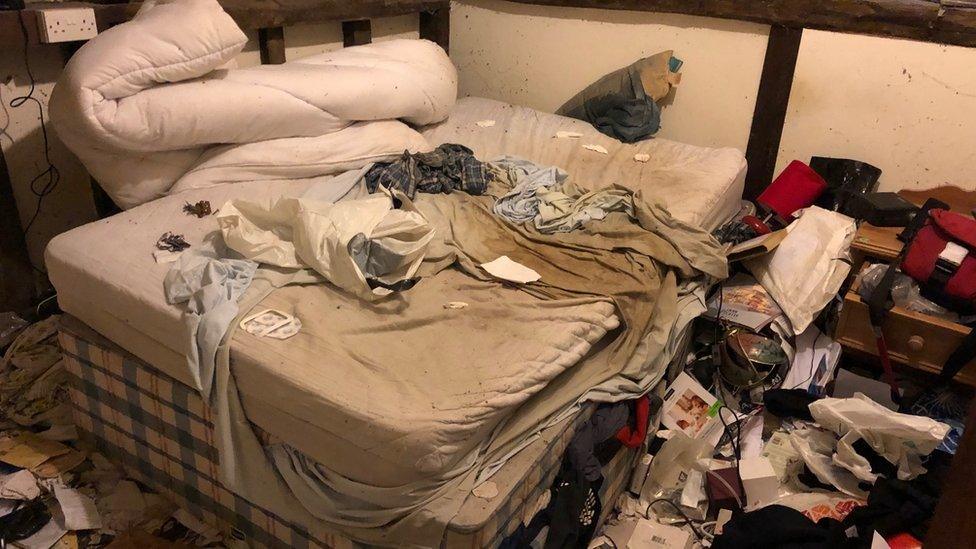
The man's bedroom was full of clutter
A decade's worth of clutter has been cleared from a man's home after emergency services had to rescue him from an upstairs window.
Paramedics were called to the man's house after a medical emergency.
Staff from an organisation named Lofty Heights, called in to de-clutter the Suffolk house, said there was no safe route to get the hoarder out because of the amount of things in there.
The social enterprise said hoarding was a "hidden problem".
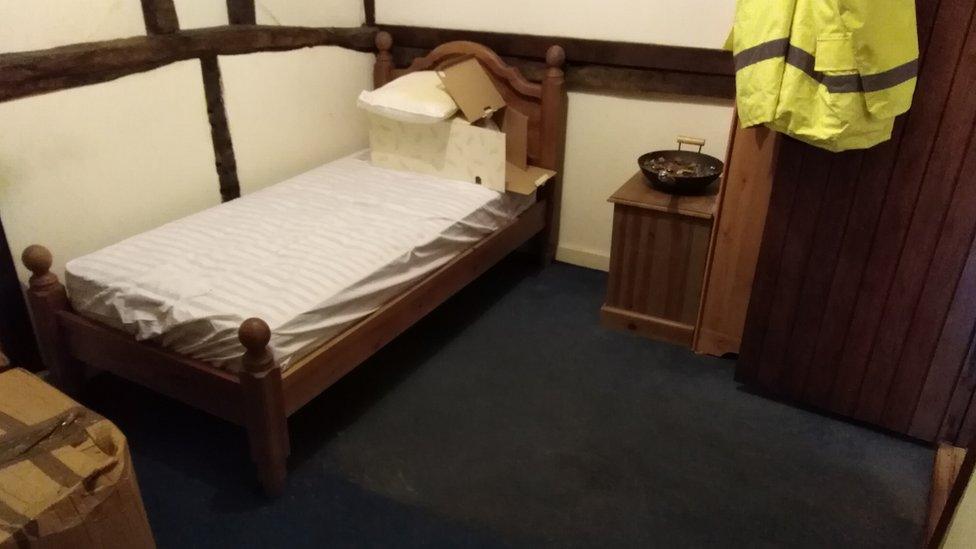
Social enterprise Lofty Heights cleared the bedroom
Inside the property, there was no room to sit on the sofa, there were boxes of electrical items and the landing was covered with books, shoes, papers and magazines.
The house was full of cobwebs, there was food crammed in cupboards and nothing worked in the bathroom.
It is understood the man, who has not been named but is in his 60s, struggled after losing his mother 10 years ago.
He was taken to hospital and through Lofty Heights' pilot scheme Homeward Bound, the de-cluttering team got involved.
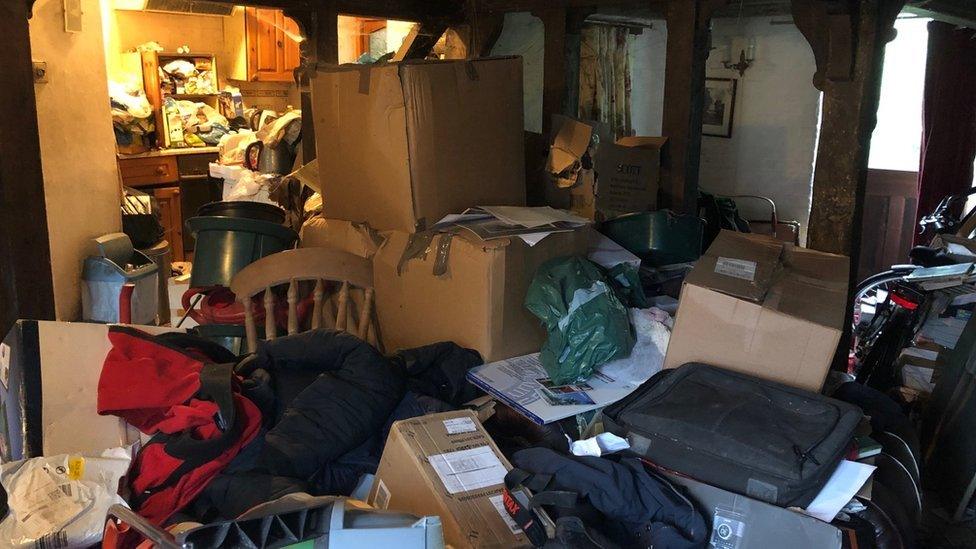
The house was full of boxes and all kinds of items, and the kitchen cupboards were crammed full
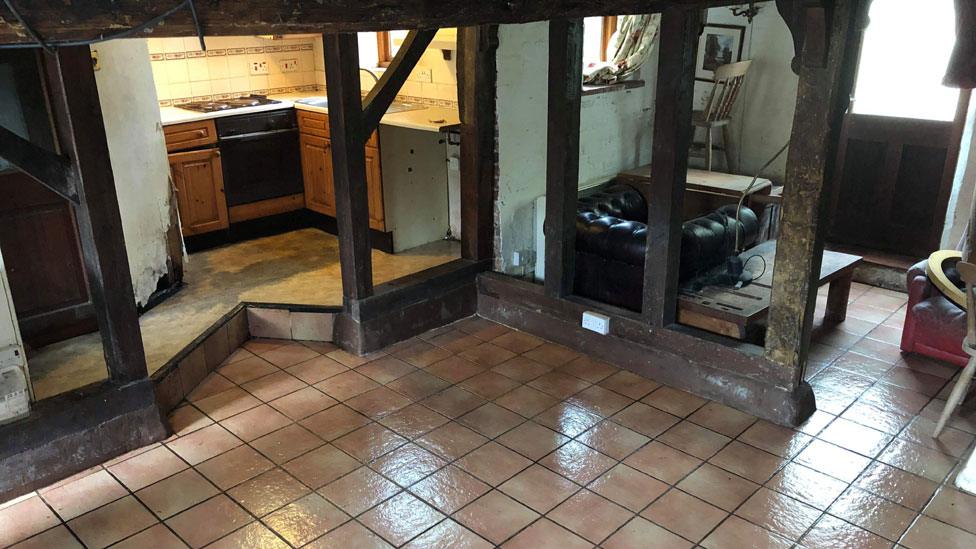
It took the Lofty Heights team six days to clear the property
Chief executive Olive Quinton said: "It's incredibly sad and really it was because of a medical emergency that this person was discovered.
"It's quite a hidden problem and it's one where I think more needs to be done to raise awareness of it.
"It's not about judging people, it's about seeing how people can help."
She said the man funded the £2,500 clean-up operation, which took the not-for-profit organisation six days.

Why do people hoard?
The reasons why someone begins hoarding are not fully understood, Ezra Hewing from Suffolk Mind says.
It can result from mobility problems, learning disabilities or because someone is developing dementia.
There are also mental health problems associated with it, including severe depression, psychotic disorders and obsessive compulsive disorder.
In some cases, hoarding is a condition in itself and often associated with self-neglect.
Many people who hoard have strongly held beliefs related to acquiring and discarding things, others may be struggling to cope with a stressful life event, such as the death of a loved one.

You may also be interested in:
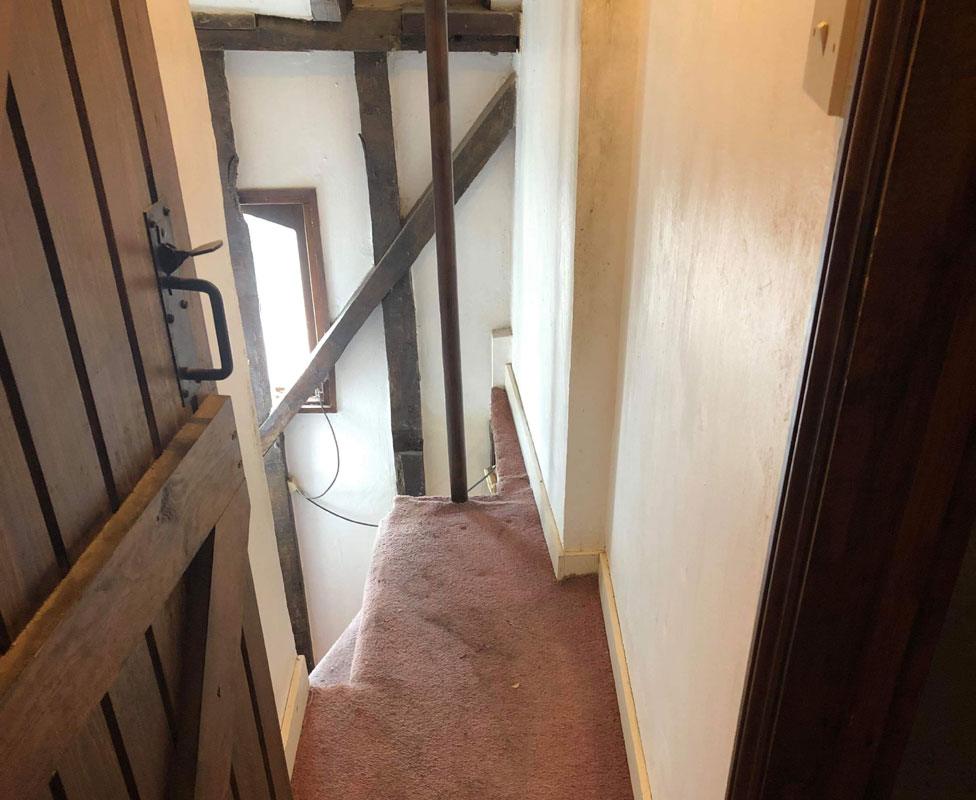
The landing, which was covered in books, shoes and boxes, has also been cleared

A new bathroom and kitchen are yet to be fitted in the Suffolk home but the man was said to be "excited" about returning to the property.
Mrs Quinton said hoarding was often to do with mental health, bereavement issues or childhood poverty.
"At one point we would be asked to de-clutter an area of a home or a cupboard but now we are dealing with much more complex cases like this all the time," she added.
- Published14 November 2018
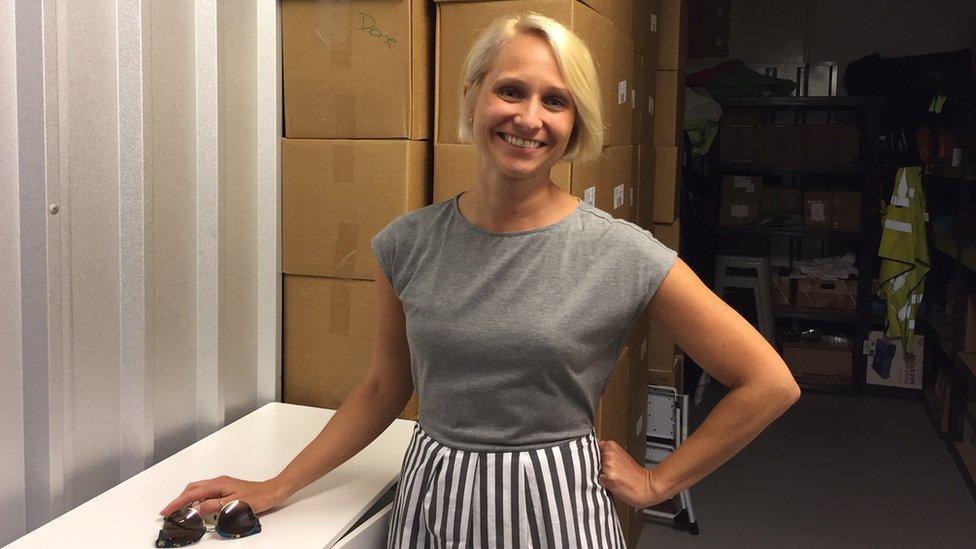
- Published23 April 2018

- Published29 January 2018
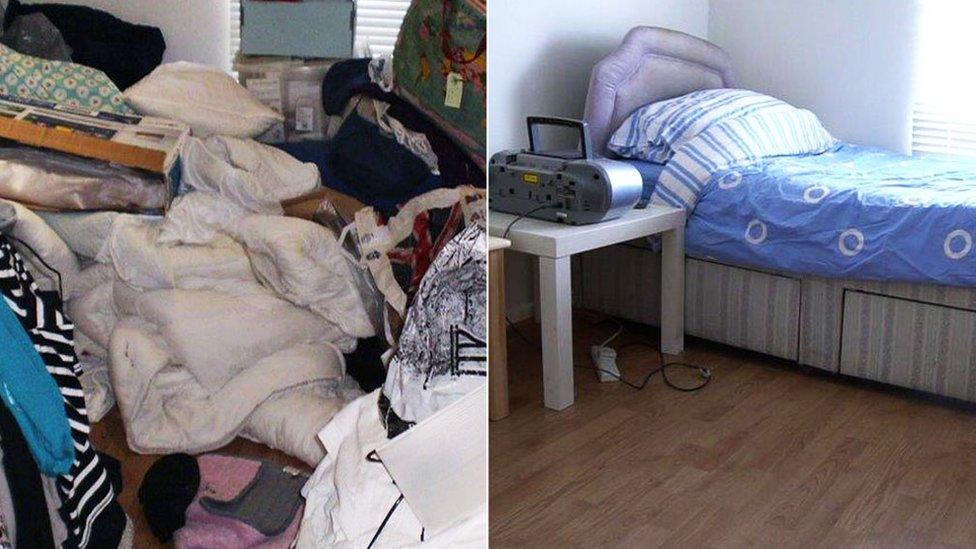
- Published29 January 2018
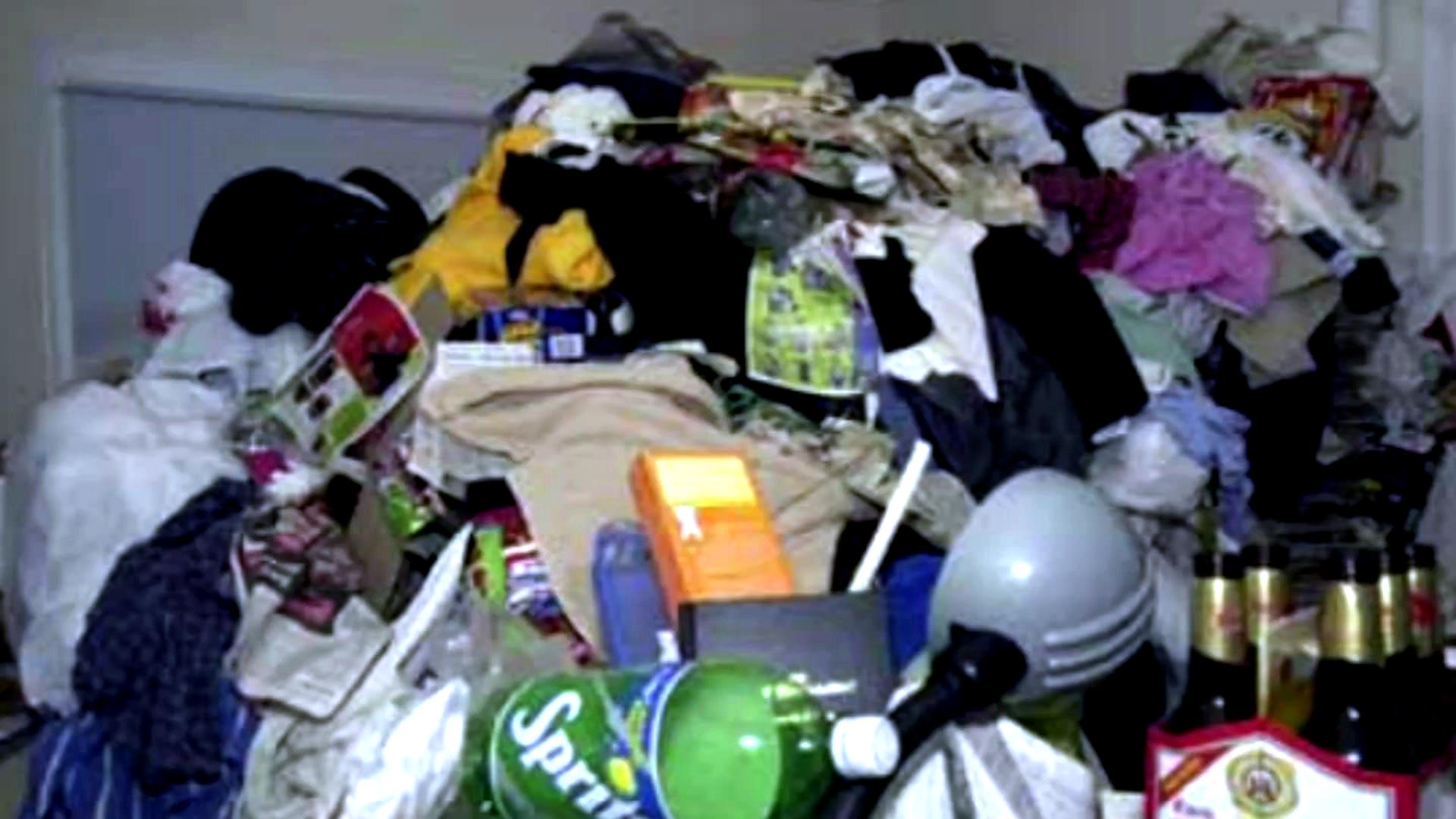
- Published21 December 2017
